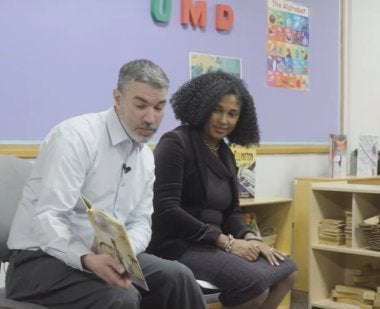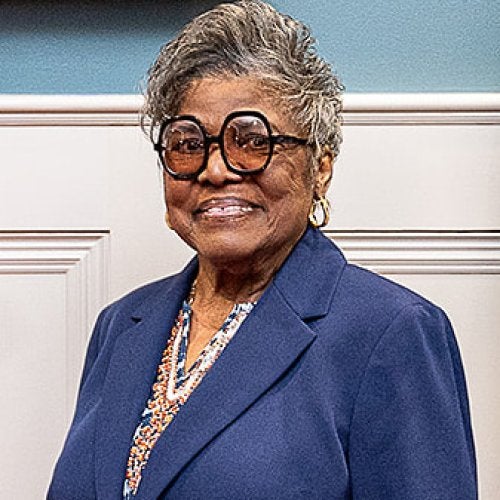
In 2013, with its reading scores mired in last place nationally, Mississippi began overhauling its education department to improve childhood literacy. Six years later, in what was dubbed the “Mississippi Miracle,” an infusion of science-backed teacher training, pre-K enrichment and rigorous assessments had boosted fourth-grade reading scores by 10 points and the state’s ranking to 29th.
Reading scores in Maryland are moving in the opposite direction. Despite being the nation’s fourth-most educated state and among its wealthiest, Maryland now ranks four points below the national average—and five below Mississippi—with over half of its schoolchildren not reading at grade level.
Now, a team of researchers and practitioners from the University of Maryland wants to foster literacy across the state for generations to come. With the help of a three-year, $3 million Grand Challenges Institutional Grant, the Maryland Initiative for Literacy and Equity (MILE) will harness the building blocks of language and literacy acquisition—including education, speech pathology, library sciences and community engagement—to translate research into best practices and widen its scope, from classroom experiences to family life, to build lifelong literacy skills.
MILE is one of three institutional grants awarded through the university’s Grand Challenges Grants program, an unprecedented $30 million investment by UMD in research to address the most pressing societal concerns of our time.
Students who struggle with reading and writing will suffer repercussions far beyond the classroom, said Donald “DJ” Bolger, MILE lead and associate professor in the College of Education, a chasm that widens as children grow older and intensifies into adulthood, impacting their ability to make a living wage, access health care or even vote. Children of color, non-native English speakers and marginalized populations are particularly at risk.
“Literacy sits at the center of so many of our grand challenges,” he said. “It’s really a public health crisis.”
Research in behavioral science and neuroscience, said Bolger, has shed new light on how and when a child acquires language (especially for multilingual learners) and understanding as well as the impact of socioeconomic challenges on learning and acquisition. But such findings are not necessarily making their way into the classroom, he said.
Morgan State University Associate Professor Simone Gibson is trying to bridge that gap in her work with teachers. For example, research shows how children’s brains respond differently to letter sounds, so she encourages teachers to be more attuned to reading gaps and more intentional in addressing them.
“In most school systems or teacher education programs, the work with parents, communities—even higher-level school system administrators—is missing,” said Gibson, who is MILE’s co-director. “Beyond faculty working with teachers and maybe principals, there isn’t much—and none of it is connected.”
What will set MILE apart from other literacy initiatives is its reach—in addition to classroom collaboration and educator training will be a robust, structured engagement effort with communities, school administrators and policymakers to eliminate disconnects between school systems and families and instill best evidence-based practices in different settings. Community-centered conversations, said Bolger, ensure families have a voice and illuminate unique challenges facing different communities, such as a lack of after-school enrichment opportunities. Ongoing dialogue will also help close the gap between what’s happening at home versus what is happening in the classroom and being tackled in research.
With an initial focus on local communities in Prince George’s, Montgomery, Howard, and Baltimore counties as well as the city of Baltimore, MILE will partner with families that have historically been left out of literacy research studies, specifically low-income and marginalized communities and multilingual learners.
“There’s a need to improve the research we do, but there are effective evidence-based practices we do have that are not making it to the people who need them,” he said. “In a way, we’re trying to develop a network where everyone is interconnected.”
Success, said Bolger and Gibson might manifest in test scores, more classroom engagement or reduced school absences. In the long term, it will help increase employment, community health or economic growth. But Bolger’s hope is also for a national shift in how we think about education and literacy.
“There's a great quote from Frederick Douglass: ‘Once you learn to read, you'll be forever free,’” said Bolger. “And that really sums up the point of this Grand Challenges Initiative. MILE is really about having that freedom extend to all children and adults in Maryland. We look at literacy as a lifelong process.”



